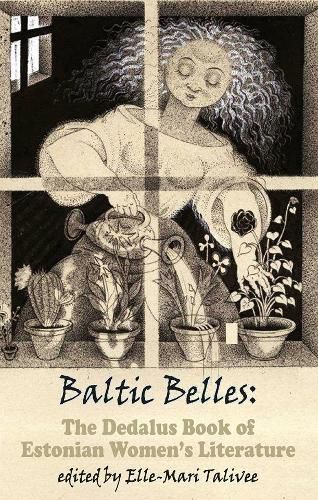Readings Newsletter
Become a Readings Member to make your shopping experience even easier.
Sign in or sign up for free!
You’re not far away from qualifying for FREE standard shipping within Australia
You’ve qualified for FREE standard shipping within Australia
The cart is loading…






This anthology presents readers with a broad selection of fiction written between the late nineteenth century and today. The collection opens with the early realist Elisabeth Aspe, who described both village life and urban fear during the final decades of the nineteenth century. Early twentieth-century works by female writers often discuss the young creative individual’s encounters in the transformed urbanised world, some of the most outstanding examples of which are by the great Betti Alver. After World War II, Estonian writing bore the unmistakable signs of Soviet censorship. Nevertheless, Viivi Luik’s momentous novel The Seventh Spring of Peace managed to avoid suppression, and the wonderfully unique Asta Poldmae seized her opportunity to write. Very strong authors like Eeva Park, Maarja Kangro, and Maimu Berg flourished with the return of freedom of expression in the late twentieth century, and continue to do so today. They represent the best of Estonian short-story writing, handling social topics very sharply and suggestively and scrutinising the country’s soul in a highly personal manner. AUTHOR: Elle-Mari Talivee was born in Tallinn in 1974. She is a scholar, critic and writer. She divides her time between her posts as a project manager at the Estonian Literature Centre and as a researcher at the Museum Department of the Under and Tuglas Literature Centre.
$9.00 standard shipping within Australia
FREE standard shipping within Australia for orders over $100.00
Express & International shipping calculated at checkout
This anthology presents readers with a broad selection of fiction written between the late nineteenth century and today. The collection opens with the early realist Elisabeth Aspe, who described both village life and urban fear during the final decades of the nineteenth century. Early twentieth-century works by female writers often discuss the young creative individual’s encounters in the transformed urbanised world, some of the most outstanding examples of which are by the great Betti Alver. After World War II, Estonian writing bore the unmistakable signs of Soviet censorship. Nevertheless, Viivi Luik’s momentous novel The Seventh Spring of Peace managed to avoid suppression, and the wonderfully unique Asta Poldmae seized her opportunity to write. Very strong authors like Eeva Park, Maarja Kangro, and Maimu Berg flourished with the return of freedom of expression in the late twentieth century, and continue to do so today. They represent the best of Estonian short-story writing, handling social topics very sharply and suggestively and scrutinising the country’s soul in a highly personal manner. AUTHOR: Elle-Mari Talivee was born in Tallinn in 1974. She is a scholar, critic and writer. She divides her time between her posts as a project manager at the Estonian Literature Centre and as a researcher at the Museum Department of the Under and Tuglas Literature Centre.